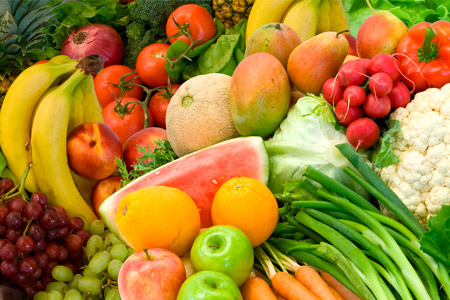The risks of high cholesterol are well known. Almost 20% of all strokes and 50% of heart attacks can be traced to high cholesterol, according to the World Health Organization. Yet most people either don’t know what their levels are or should be. Over 100 million Americans over age 20 have high cholesterol.
You should have your levels checked by your health care professional as soon as possible to know where you stand. Health experts recommend getting your levels checked at least once every five years, and even more frequently as you age. Track what numbers you should be shooting for and, more importantly, the accepted ratio between your good (HDL) and bad (LDL) cholesterol.
Six Easy Ways to Lower Cholesterol
Suppose you’ve had your cholesterol checked and it’s high. Or perhaps you’re already taking medication to control your levels. By adding the following foods and nutrients to your daily diet, you can help lower your levels naturally.
1. Eat oatmeal.
Nothing like a hearty bowl of warm oatmeal to start your day and lower your LDL cholesterol (the bad cholesterol). Why does it work so well? Whole oats contain a type of fiber called beta-glucan.
These fibers contain glucose molecules that act in several ways to mop up cholesterol and eliminate it through the bowels. How much to eat? One daily bowl of good, old fashioned whole rolled oats can begin the process of lowering your cholesterol.
2. Eat apples.
An apple a day keeps high cholesterol away. Okay, so that’s not the way the old saying goes. But it’s partly true. Research has shown that apples are rich in antioxidants and a cholesterol-lowering fiber called pectin. Eat one apple a day but make sure you eat it with the skin in order to get the full benefits.
3. Eat flaxseeds.
Mahatma Gandhi once said, “Wherever flaxseeds become a regular food item among the people, there will be better health.” You can follow his advice by grinding up a tablespoon or two of flaxseeds and adding them to oatmeal or smoothies.
You’ll be giving high cholesterol a one-two punch. That’s because flaxseeds contain lignans, compounds that have been shown to lower total and LDL levels. You can grind flaxseeds in a coffee grinder. Flaxseeds have a laxative effect, so don’t go overboard. Add this nutty-tasting food to your diet gradually.
4. Eat pears.
If apples aren’t your cup of fruit, try pears. Pears also contain lignans. They are also one of the fruits that are rich in flavanoids, nutrients that help promote heart health.
5. Go nuts.
Almonds, walnuts, pecans, hazelnuts, peanuts, and pistachios can do your heart a heap of good. Almonds in particular—whether raw, roasted, or in almond butter—have been shown to be especially effective for reducing LDL levels when combined with a heart-healthy diet. Walnuts are a very close second.
Here’s a nutty little trick you can try to make your nut eating healthier. Eating a handful of raw nuts everyday (one ounce) is better for you than roasted and salted because you get less sodium and fattening oils. If you can’t stand the thought of eating raw nuts, put one-half ounce of raw nuts and one-half ounce of roasted in a bowl and mix them together. They’re still delicious!
6. Take plant sterols.
Substances called plant sterols, which are found in fruits, nuts, seeds, beans, and plants are an extremely effective way to lower cholesterol and LDL cholesterol. It’s impossible to get enough plant sterols from the diet, even for vegetarians who eat a lot of plant-based foods.
That’s why plant sterols are now available in processed foods. Margarines, orange juice, and other plant sterol containing foods may help reduce LDL cholesterol by more than 10%. The American Heart Association recommends foods fortified with plant sterols for people with LDL levels over 160 milligrams per deciliter.
The downside of these margarines is that they are high in fat, which means lots of calories if you use too much. Look for margarines that say phytosterols on the label that are low in saturated fats and have no trans fats. Also, consider using the light versions for fewer calories.
Better yet, add a plant sterol supplement to your diet and get the full benefits without fat or calories. These concentrated plant sterols can give you exactly what you need without a bunch of extra calories. The result can be lower cholesterol and a healthier heart!







I really like your advice, keep it up